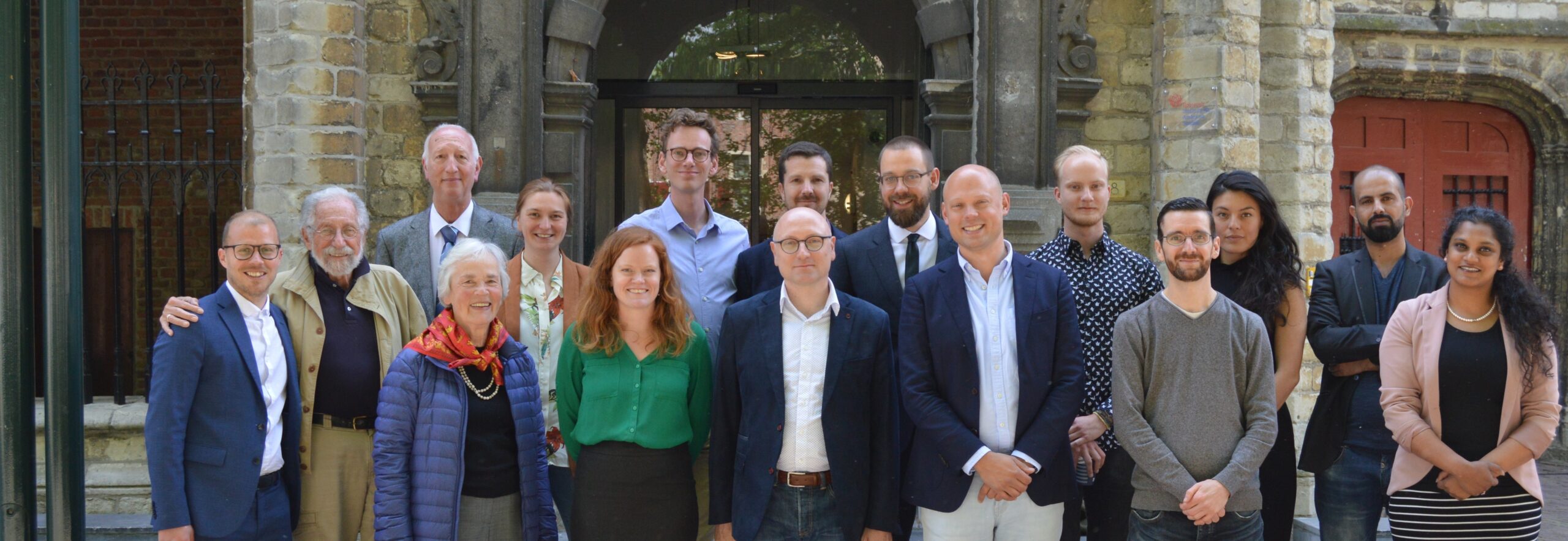This one-day conference has been organized by the RIAS and the University of Strasbourg on 22 May 2019.
The main aim was to explore the idea of “American Islands,” conceived as well-identified places that have favored, through constant cross-cultural exchanges, the contamination and hybridization of American values, principles, habits, and customs outside of the United States. To do so, the participants have offered analyses on a huge variety of case studies, dealing with all sorts of permeable hubs that can be interpreted as American Islands. Recounting the story of either military bases or cultural centers, academic networks or aide organizations, business towns or expat communities, the different presentations depicted the many American Islands scattered all over the world as crucial sites for the dissemination of American culture, ideology, and power. According to the participants, these American outposts have promoted views of progress, security and modernity, have generated “indigenized” and blended cultural forms, and have replicated phenomena of adoption and adaptation as well as resistance and rejection that have in the end substantiated the US entanglements in the world.
After a brief introduction of the two conference organizers, Dario Fazzi and Francois Doppler-Speranza, the first speaker, Michael J. Straus from Paris presented on the complex, at times confusing, and yet crucial legal framework that legitimizes the US presence in Guantanamo. Stressing the relevance of the international agreements that allowed the US military permanence in Cuba, Michael, in line with some of the most recent institutionalist approaches to the matter, pointed out to the “leasehold” nature of the US empire.
After Michael, Danny Pronk from the Clingendael Institute in The Hague took the floor. Danny discussed the intelligence sharing between the Dutch and the Americans occurring mostly through the American military presence at Soesterberg. Danny highlighted the unique nature of Camp New Amsterdam, an American enclave built in the middle of the Netherlands that, throughout the cold war, enabled a constant exchange of information, threat assessments, and security perspectives that was instrumental to the creation of a common and new understanding between the Americans and their European allies.
Then, Molly Trueblood from the Erasmus University Rotterdam expounded on the costs and benefits of applied Keynesian militarism, which did not only characterize America’s positioning globally, but also its controversial and long-standing colonial endeavors, especially in the Caribbean region. In particular, Molly explored the socio-economic consequences that the establishment of Fort Buchanan in Puerto Rico had on local population, in terms of economic and infrastructural development, employment and educational opportunities, and identity building.
The morning session was concluded by Floris Heidsma, who presented parts of the thesis he recently defended at Leiden University. Floris focused on the American military presence in Okinawa and primarily assessed the cultural impact that this presence has had on local hosts. The main case studies at the center of Floris’ analysis were the reconfiguration of urban landscapes, the introduction of new culinary and musical tastes, and the progressive popularization in Japan of peculiar forms of American fashion, chiefly represented by the widespread use of Hawaiian shirts.
The afternoon session was opened by professor Peter I. Rose’s keynote address. A sociologist, ethnographer and anthropologist, professor Rose gave a first-hand account of the spread of American Islands all over the world, how they operate, modify local gender, race and class relations, and defend the interests not only of the US government but also of American corporations, factories, banks, and capital in general. In doing so, as professor Rose pointed out, the Americans, who in the vilified form became Yankees, oftentimes represented scapegoats, external agents who were simultaneously praised and damned for the sudden shifts and changes they brought about after establishing their communities abroad.
The session continued with the presentation by Peter Postma, PhD candidate at the University of Leiden and lecturer at the University of Groningen. Peter spoke about the case of Nyenrode, a business school modeled upon the American ones and established in the late 1940s in the Netherlands. Through this case study, Peter showed that American Islands are simultaneously agents of cultural transfer, norm entrepreneurs, and cultural builders. Ayman Al Sharaft from the Lorand University in Budapest went along the same lines of inquiry by presenting his study on USAID coordinated efforts in Jordan. Both these analyses offered interesting insights into the overlaps between public and private efforts that American Islanders make in the attempt to maximize their positive outreach toward their hosting and surrounding communities.
The final speaker was Albertine Bloemendal, from Leiden University, who presented on the US war cemetery in Margraten, the Netherlands. That place epitomizes, according to Albertine, an interesting example of memory diplomacy, where gratitude toward a benevolent liberator is perpetrated through continuous remembrance and commemoration. By highlighting such programs as the ones through which local people still adopt the American soldiers’ graves or their participation in the organization and celebration of the yearly Memorial Day, Albertine stressed how these forms of American Islands are primarily sites of social interactions and not just the projection of the symbols of the American nation.
The conference program can be downloaded here.
The conclusive discussion took stock of the multifaceted researches that were presented during the day. The main remarks revolved around the necessity of a deeper and concise operationalization of the category of American Islands, so to make it relevant from an historiographic point of view and compelling both as an interpretive and as a cognitive tool through which to analyze the American presence abroad. All the participants found the discussion thought-provoking and appreciated the genuine exchange of perspectives that the RIAS signature informal atmosphere granted throughout the symposium.



